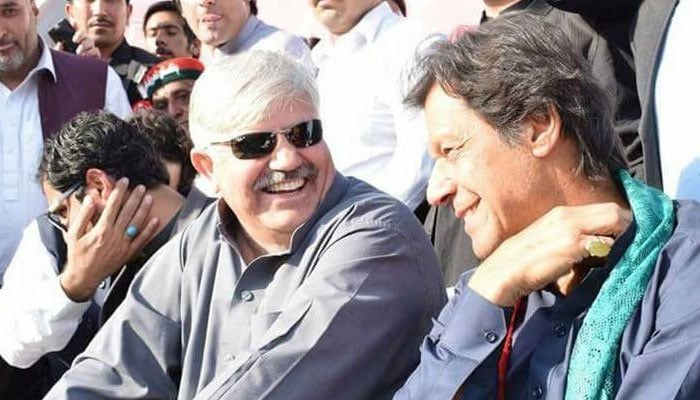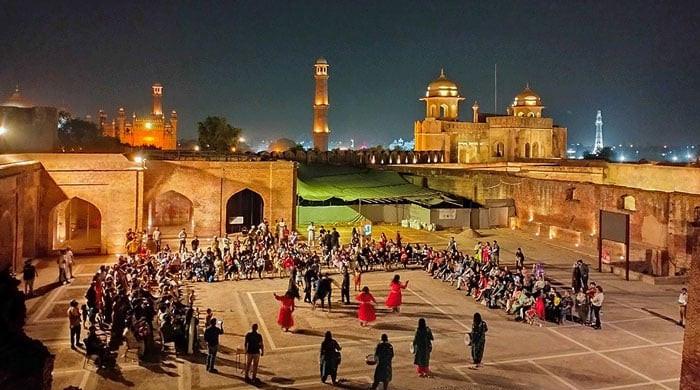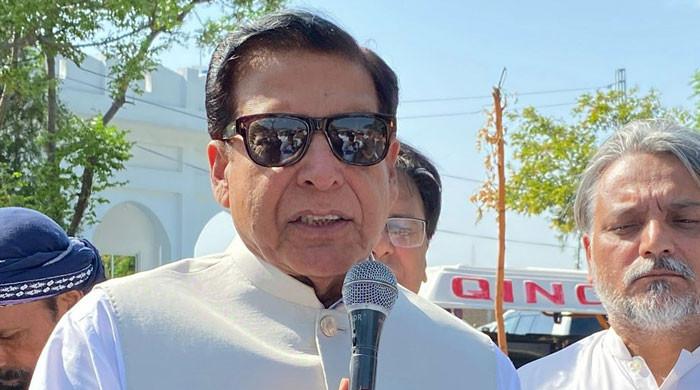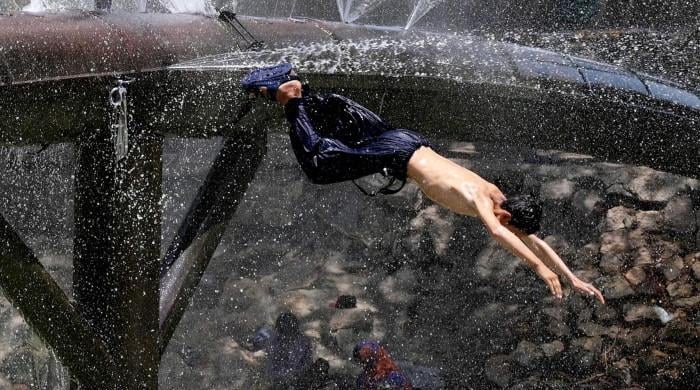How Mehmood Khan’s name came up for chief minister KP
Khan is the first chief minister to have to deal with the judicial and infrastructural needs of an area bordering Afghanistan
August 13, 2018

Mehmood Khan might not be the best man for the job, but he is the most non-controversial.
When choosing the chief minister of Khyber Pakhtunkhwa, Tehreek-e-Insaf’s chief, and possibly Pakistan’s next Prime Minister, Imran Khan, had his work cut out for him. It is no secret that the party had two lobbies, working overtime, to convince Khan to choose their man. One led by the former chief minister of KP, Pervez Khattak, and another by the provincial minister of education, Atif Khan. Then, of course, there were other hopefuls, but none had Khan’s ear like the above two.
Soon after the election concluded last month, Khattak was a strong contender for the slot. He ran the province with much success in the last five years. Despite some hiccups - like defections and angry coalition partners - he was able to keep PTI in a comfortable majority in the provincial house. However, what threw a spanner in the works and blocked his path to be chief minister again was Imran Khan’s motto of the kind of politician he would want for the job.
Another factor was that on July 25, Khattak won two provincial and one national assembly constituency. If he was to rule the northwestern province again, he would have to vacate his National Assembly seat. This was a big concern for the PTI leadership, as every single lawmaker counts in the parliament on vote day, if it wants to elect Imran Khan as the prime minister and tackle the candidate fielded by the joint opposition of Pakistan Muslim League-N, Pakistan Peoples Party, Muttahida Majlis–e–Amal, and Awami National Party. It is primarily this condition that has convinced other prominent politicians, elected on provincial seats in KP, such as Ali Amin Gandapur, Dr Haider Ali, and Asad Qaiser to retain their National Assembly seats over their provincial ones.
So now that Khattak knew what Imran Khan’s verdict was he then began lobbying to ensure that the slot also did not land in the lap of Atif Khan.
The two have butted heads several times in the last five years. There were several incidents of a heated exchange between the former minister of education and his cousin, Shahram Khan Tarakai, the former provincial minister of health, and Pervez Khattak. After one such incident, Tarakai left for two weeks for the United States. Tempers only cooled once Imran Khan or Asad Qaiser, the former speaker of the KP assembly, mediated.
In order to avoid this, Imran Khan went for a third name as chief minister – Mehmood Khan from Swat.
The 46-year-old was a surprise entrant in the race. He has previously held the portfolio of sports, culture and irrigation in the province. According to those privy to developments within the party, his name was put forward by Khattak, who it seems finally won in getting his way with the party chief. While, Atif Khan is reportedly angered by the decision, for now, he has few other political venues to explore. A recent posting on Twitter by PTI’s official account showed an image of Atif Khan and Tarakai meeting Imran Khan at his residence in Bani Gala. Also seated nearby is Mehmood Khan. This could put to rest rumours of Atif Khan leaving the party.
What kind of a chief minister will Mehmood Khan be?
For one, he would have a smoother sailing than that of his predecessor. The PTI has emerged victorious in the province with a heavier mandate then last time. It won 66 general seats, compared to 30 in 2013. A 2/3 majority means less reliance on coalition partners such as the Jamaat-e-Islami or the Qaumi Watan Party. Another plus for the Swat resident would be that he has the strong backing of PTI heavyweights, Khattak and Jahangir Tareen. It would be thus difficult for another lobby to break their hold.
Also, since Mehmood Khan is considered close to the former chief minister, there is a perception that Khattak will eventually be pulling the strings of the province.
That said, there will be several challenges for the new chief minister. Provincial assembly polls are due in the tribal belt next year, which would happen under the watch of Mehmood Khan. And since now that the Federally Administered Tribal Areas are merged into the Khyber Pakhtunkhwa province, Khan will be the first chief minister to have to deal with the judicial and infrastructural needs of an area bordering Afghanistan.











